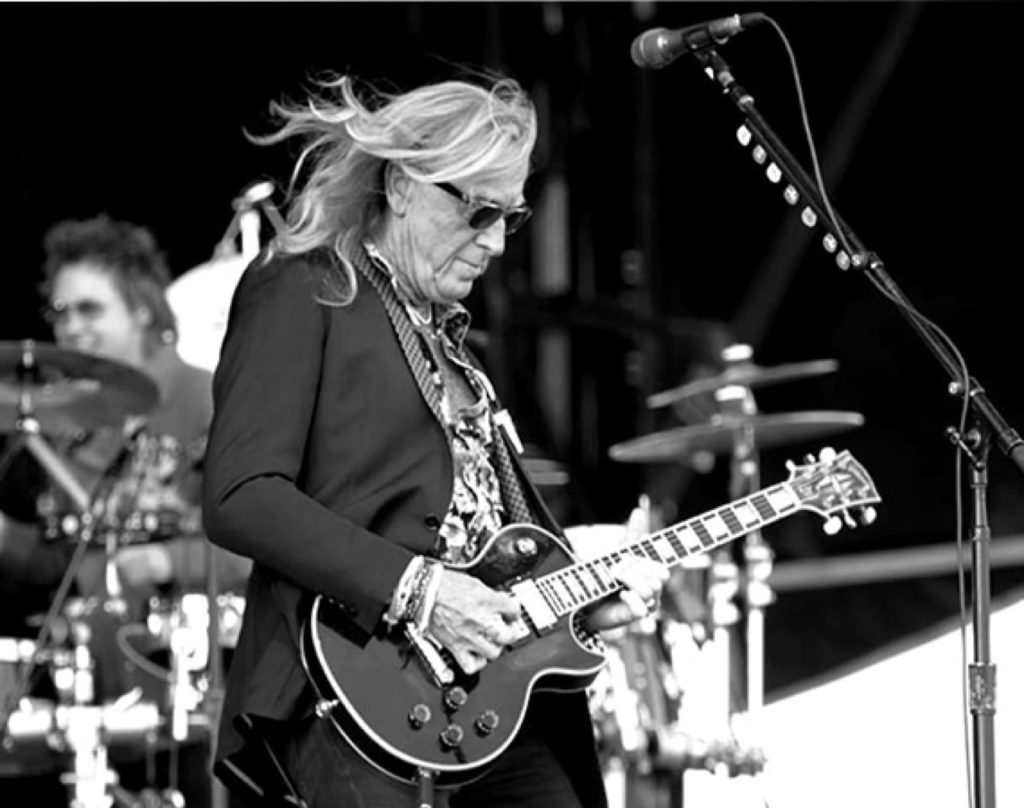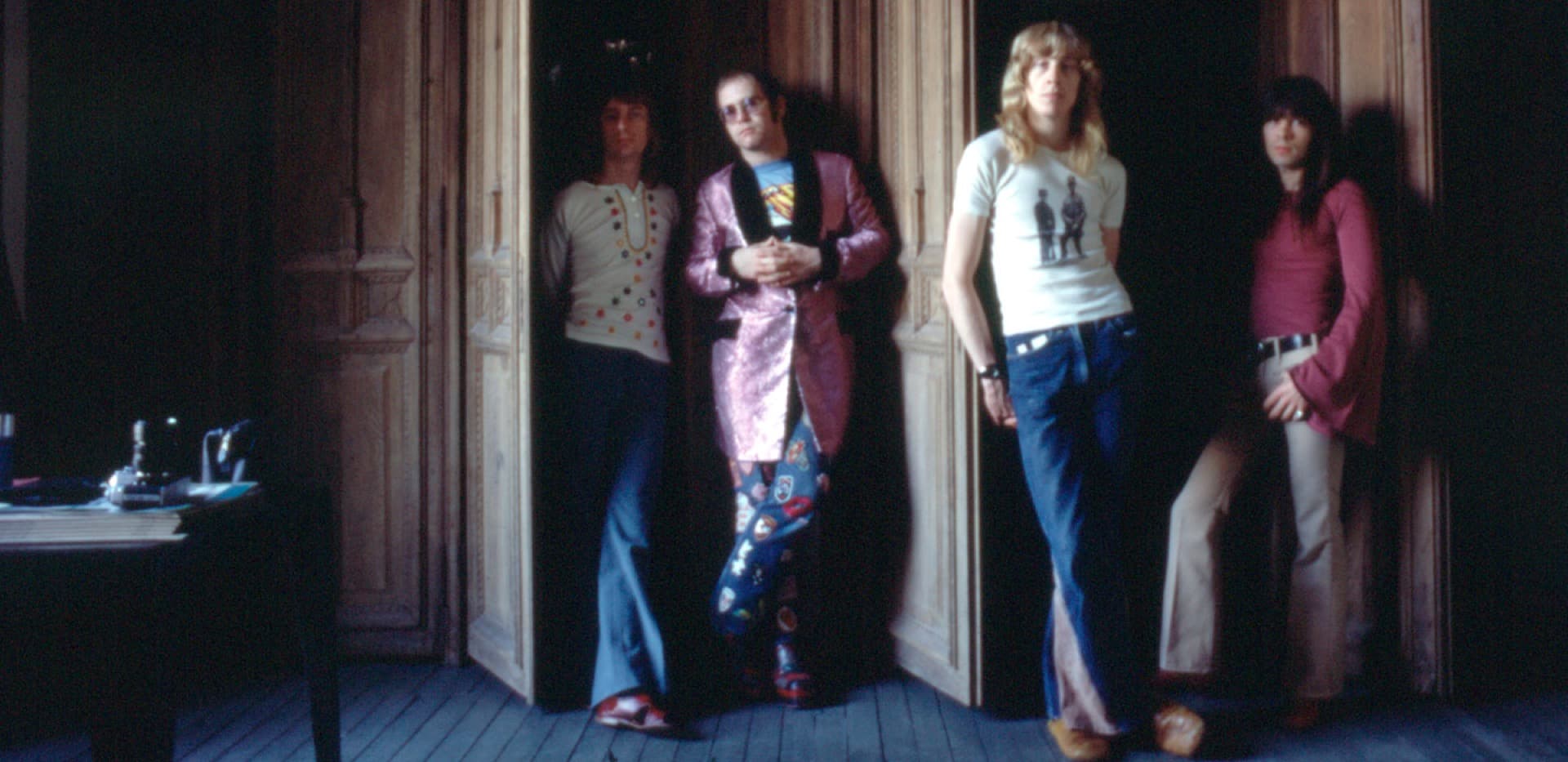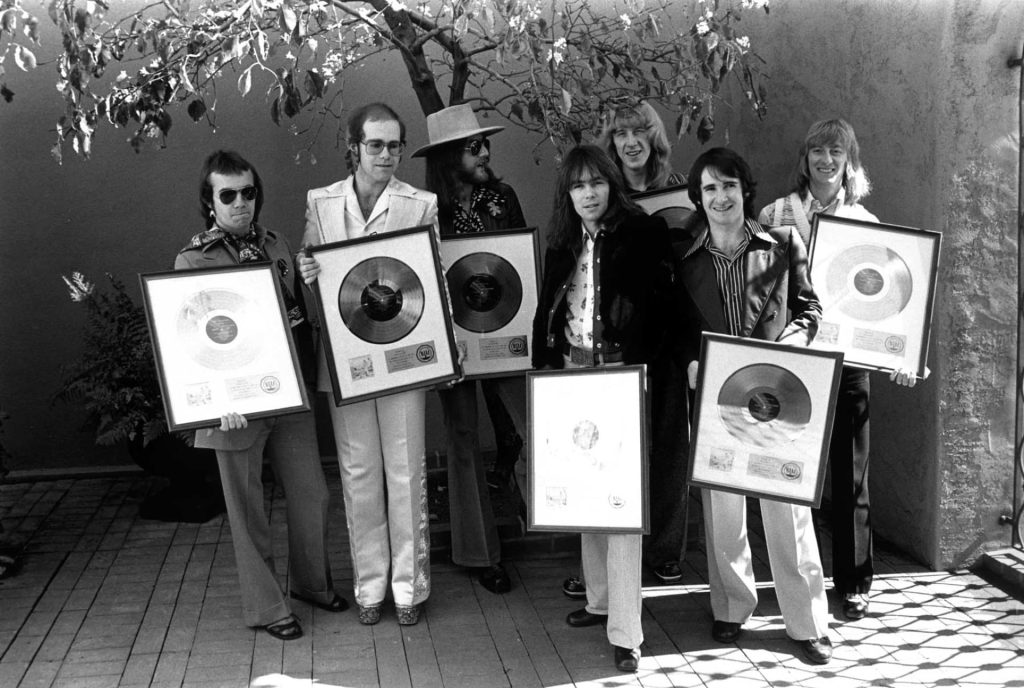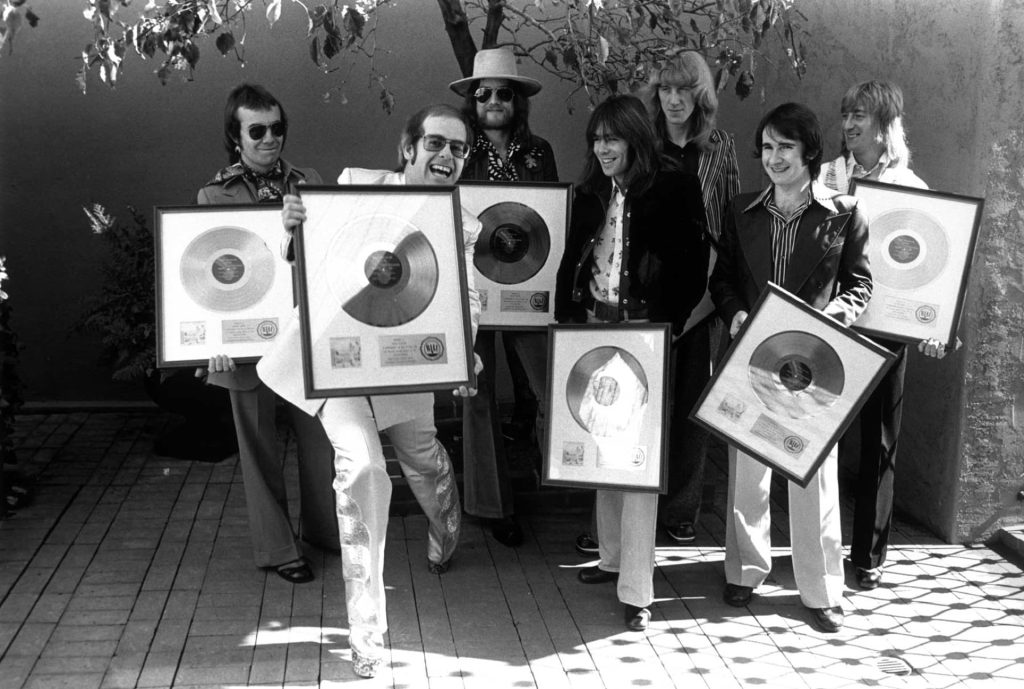Menu
Davey Johnstone Talks About ‘Goodbye Yellow Brick Road’

Davey Johnstone has been Elton’s guitarist since the recording of Madman Across The Water, in 1971. Two years and two albums later, Davey was back in the studio with Elton, bassist Dee Murray and drummer Nigel Olsson, recording Goodbye Yellow Brick Road.
In this exclusive interview with EltonJohn.com, Davey talks about his memories of recording the album, both in Jamaica and France.
I had just turned twenty-two when we did Yellow Brick Road. It was like, 'God this is amazing.'
What do you recall about the attempt to record the album in Jamaica?
We realised when we walked in the studio that there was no way we could make a proper Elton John record there because it was like two microphones. It’s great for reggae, don’t get me wrong, and I love good reggae. But we knew we were in deep trouble when the guy said, “Carlton, get the microphone.”
In the studio there was carpet that was not only on floor but it was on the walls and the ceiling. The same carpet. It was like, “Which way is up?”
There were a few songs written. Not the whole album but there were four or five lyrics and songs ready. And we were ready to go. We did a version of Saturday Night’s Alright that sounded like a bunch of angry bees. It just sounded terrible.
There was a very funny moment on the first day we were in the studio and he was writing Social Disease. And I thought at the time, “Banjo would be great on this one.” So I went over to my banjo case and opened it up. In those days we used to transport all of our instruments on regular airlines because we didn’t have the resources to have them all shipped in the way they are now.
And so Elton’s singing away on Social Disease and I kind of have one eye on him as I’m opening the case up and I picked the neck of the banjo up and lifted it out of the case…and only the neck came up – with the strings kind of dangling! The neck had snapped completely off; the main part of the banjo was still lying there. So I did a double take I guess, and Elton fell off his piano bench. Nigel fell off his drum stool. Dee started screaming with laughter. And we proceeded to laugh for about half an hour. When we finally got our breath back, Elton’s first words were, “What kind of organ was it?” And we started in again. He meant to say, “What kind of banjo was it?” To this day he still uses that term if I bring a new guitar. “What kind of organ was that?” We just crack up again.
Ken Scott is a brilliant engineer and if he and Gus couldn’t get something happening, it was obvious there was nothing we could do. We tried for one or maybe two days and it was like, “Let’s end it now rather than wasting any time and money here.” So we just had a vacation. I can remember mainly Nigel and I floating around in a pool in Ocho Rios having a great time.

Elton with Davey (2nd from right) and the band at the Château d’Hérouville. (Photo: Bryan Forbes)
A few months later you were back at the Château.
Yeah, we had four or five songs ready and he wrote a bunch more there.
The way the Château was set up, there were two buildings. One building was the studio. The other building was where we all slept and hung out, and there was a breakfast room. In the mornings we’d get together and have some coffee and French bread. And Elton would be picking out some idea on the piano there. Looking through Bernie’s lyrics… “Oh, I’ve got one!” And we’d learn it there and then we’d run over to the studio and cut it. Some days we’d cut one song – some days we’d cut three or four.
You don’t really need anybody else if you’ve got Elton John.
Following huge demand for tickets, Elton’s show in Lucca has been upgraded to the city walls arena.
The new site will allow 7000 more fans to attend the Lucca show, part of the Elton’s critically-acclaimed Farewell Yellow Brick Road tour. The tour marks Elton’s retirement from touring after 50 years on the road.
You would not have heard David Hentschel’s intro to ‘Funeral For A Friend’ until the album was all done, because he did that in London after you had finished recording in France. What was your reaction?
We knew there was going to be an intro and that David was going to do it. And I knew how good he was because he had worked on my solo album [Smiling Face] and he’s a brilliant musician and a great guy. And I knew whatever he did was going to be great. But I remember the very first moment we heard it we were all kind of looking at each other going, “Well, do you like it? I dunno, what do you think?” It was one of those, you know? And then the second time through, it was, “Ohhh, yeah…this is great!”


